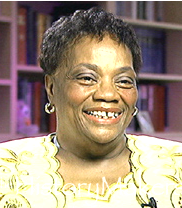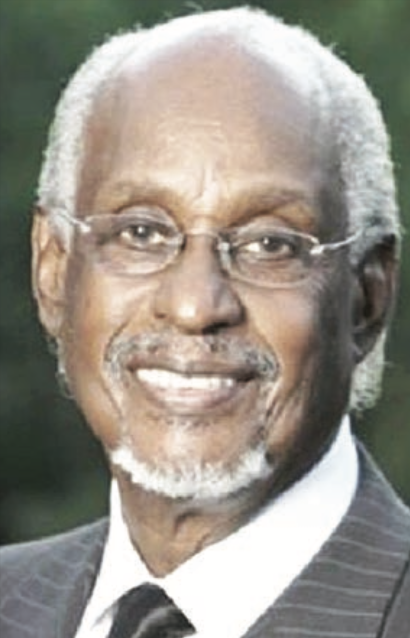
By Shirley Hopkins Davis, PhD,
Special to The Mississippi Link,



If you’ve ever wondered what happened to a small private A.M.E. school called Campbell College in Jackson, Mississippi, you will find it online using the key phrase “Lost Colleges.” Lost? Campbell College has never been lost, nor should we allow any Historically Black College and University (HBCU) be defined as “lost.”
The college was named honoring Bishop Jabez P. Campbell, the 27th elected/consecrated bishop and founded in 1890 by the Mississippi and North Mississippi conferences of the African Methodist Episcopal Church (A.M.E.). It continued to function into the early 1960s with an enrollment of 300 students, closing in 1964, after 70 plus years of providing blacks basic educational and religious principles.
First founded in Vicksburg, Mississippi, the college was and is more than meets the eye when assessing its torchbearers, the proud alumni of the junior college. Still to blacks who were denied the opportunity to get an education in public schools, it represents the beacon of hope for better lives in America that were the objectives of all HBCUs.
Its mantra was “to give students a thorough education – preparatory, collegiate, theological and industrial – together with such instruction in the art of expression, music, industry, business, and all prerequisites, which will contribute to their efficiency in the home, the state and the nation.” (Lost Colleges: https://www.lostcolleges.com/campbell-college-ccnn)
Historian Sheren Sanders noted that Campbell College was established as a grammar school and junior college “to impose strict standards of behavior on its students based on Christian principles. Some 50 years after its closing, the same purpose and values can still be found in the hearts, minds and lives well-lived by many alumni.
It contributed to the basic foundation of three most prominent A.M.E. elected and consecrated bishops: H. Hartford Brookins (91st – deceased at age 86, 2012), Henry Allen Belin Jr. (104th ) and Carolyn Tyler Guidry (122nd).
It was a privilege to interview Bishop Guidry this year, who now resides in Atlanta, Ga. At the age of 83, she remembers distinctly that Bishop Howard Thomas Primm (71st) preached the baccalaureate service at her graduation, based on Genesis 1, to “put God first and all others would fall in place.”
Bishop Guidry moved through life as a gospel preacher/pastor, the first female presiding elder in the 5th District of the A.M.E. Church, and the second elected/consecrated female bishop in the AME Church.
She relates, “If I had not graduated from Campbell, I would not have been able to go to Tougaloo College. Although I did not complete studies at Tougaloo, I was able to use credits earned at Campbell and Tougaloo to get into Fuller Seminary in Los Angeles, Calif.”
Despite its small size, Campbell played an important role in Jackson’s civil rights movement, as it did not rely on state money as a private school. Its students not only participated in demonstrations and protests but also served as supporters and ambassadors of the movement.
Sanders noted that on April 8, 1960, Mississippi’s field secretary of the NAACP and civil rights activist Medgar Evers held a press conference at Campbell College to announce the “Easter boycott” targeting white-owned businesses in downtown Jackson.
It was organized by Campbell students and led by dean of students Charles Jones and student body president Alfred Cook. Johnny Barbour Jr., a Campbell College student, was arrested and charged with “breach of peace” for sitting in the whites-only section of a city bus during a bus sit-in in April of the following year.
Barbour went on to become pastor of A.M.E. churches in Louisiana and Mississippi, spanning 60-plus years of service with the “Campbell Passion” for education, justice and equality. He was elected president and publisher of the A.M.E. Sunday School Union in Nashville, Tenn., in 2000. He served 15 years as pastor at Pearl Street A.M.E. Church in Jackson. After serving 16 years as Publisher, he retired in 2016.
In October 1961, after students staged a walkout at Burgland High School to show solidarity with participants in a sit-in in McComb, Campbell College attracted the ire of white officials when it allowed students boycotting Burgland to enroll there. (Campbell College – MS Civil Rights Project, 6-19-20)
In 1964, the state of Mississippi seized the college by eminent domain. Scholar Jay Ann Williamson wrote, “Legislators never called it an act of retribution, but Campbell’s place in the Jackson movement clearly influenced the decision.”
Williamson stated, “The demise of Campbell College provides an extreme example of private Historically Black Colleges and Universities’ (HBCU) vulnerability to state attempts to quash the Civil Rights Movement.”
Campbell’s physical plant became part of Jackson State College (now Jackson State University – JSU). Jackson State used the Campbell structure to house student affairs up until 2004, when it was demolished. When JSU expanded its physical plant, Campbell College was remembered as “a contributor to the advancement of education for blacks in Mississippi.” (JSU Catalogue 2021)
JSU named its “Campbell College Suites” in honor of “one of the first colleges for African Americans in the state of Mississippi.” The Suites house approximately 420 male and female upper classmen – noted as Suites North and Suites South. Each residence hall is suite-style with study rooms on each floor, laundry facilities, multi-purpose room and community kitchen.
In closing, let us remember: No HBCU is ever a lost cause or a lost college, and may Campbell College never be thought of as lost for it is lost no more.
Shirley Hopkins Davis, PhD is an historiographer at Pearl Street African Methodist Episcopal Church, Hinds Community College – Utica Campus (Retired) Dean Emeritus, and the 8th Connectional (International) President for Women’s Missionary Society – AME Church. She resides in Clinton, Miss.

Be the first to comment